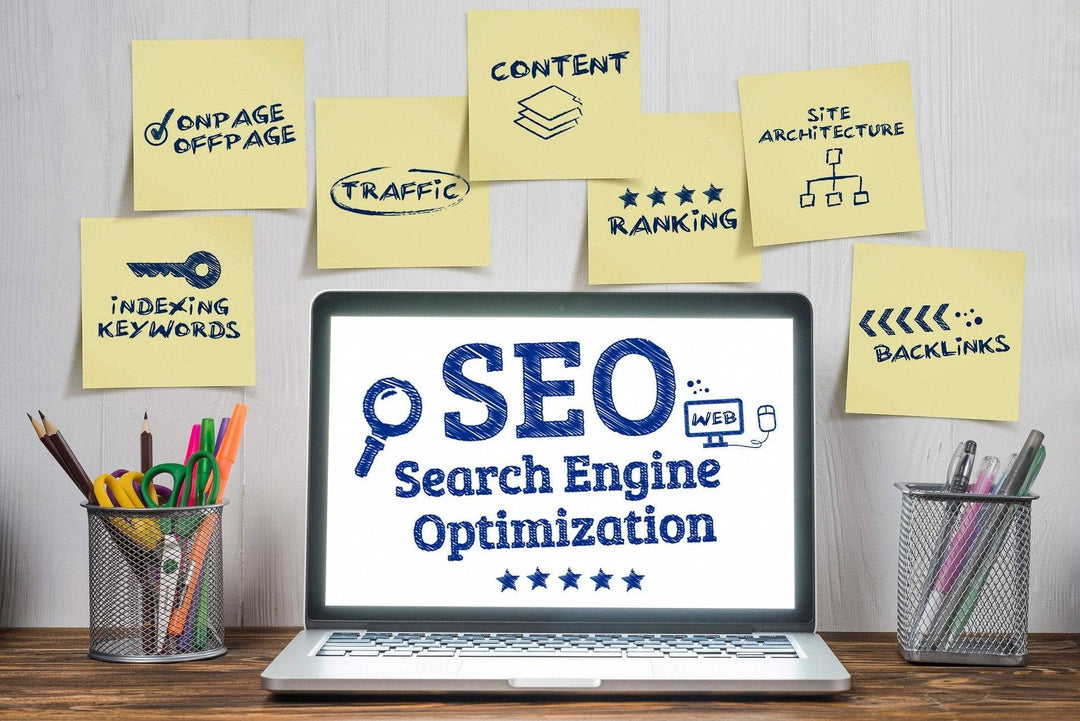Frequently Asked Questions
1. Why is SEO important for my Shopify store?
2. What are some basic SEO techniques I should understand?
3. How can I optimize the structure of my Shopify store?
4. What are effective methods for building quality backlinks?
5. What tools can I use to monitor my SEO efforts?
Optimizing your Shopify store for search engines is crucial for your online business's success. With the right strategies, you can elevate your visibility in search results and attract more potential customers. In this guide, we will explore effective techniques specifically tailored for your Shopify store, ensuring that you stay ahead in the competitive world of Curbside Pickup eCommerce and more. Let's dive into the multifaceted world of SEO!
Understanding SEO Basics
Before diving into the optimization techniques, it's important to understand the fundamentals of SEO. Search Engine Optimization (SEO) is a series of techniques designed to improve your website's visibility on search engine results pages (SERPs). The better your SEO, the higher your website can rank in search results, leading to more traffic and potential sales.
The Importance of Keywords
Keywords are at the heart of SEO. They're the terms and phrases that users input into search engines when looking for information, products, or services. For Shopify store owners, choosing the right keywords is essential to connect with your target audience.
- Research Your Keywords: Use tools like Google Keyword Planner and SEMrush to identify relevant keywords for your niche.
- Focus on Long-Tail Keywords: These are longer and more specific phrases that typically have lower competition.
- Incorporate Keywords Naturally: Ensure your chosen keywords flow naturally within your content for a better reader experience and effective optimization.
On-Page SEO Techniques
Once you understand the basics of SEO and keywords, it's time to focus on on-page SEO. On-page SEO refers to the elements on your own website that you can control and optimize for search engines.
Optimize Your Store's Structure
The structure of your Shopify store plays a significant role in how search engines crawl and index your site. Here are some tips to improve your website's structure:
- URL Structure: Use clear, concise URLs that include relevant keywords. For example, use www.yourstore.com/product-category/product-name instead of long, complicated URLs.
- Sitemap: Ensure you have an up-to-date sitemap. This helps search engines discover your pages more effectively.
- Mobile Optimization: With more users shopping on their mobile devices, having a mobile-friendly website is crucial. Shopify themes typically offer responsive design options!
Meta Tags and Descriptions
Meta tags are snippets of text that describe a page's content. Optimizing them can significantly improve click-through rates from search engines:
- Title Tags: Each page should feature a unique and descriptive title tag that includes primary keywords.
- Meta Descriptions: This acts as a short summary of the page, encouraging users to click on your link. Keep it engaging and relevant, including target keywords.
Content is King
Creating high-quality, informative content is arguably the most important aspect of SEO.
- Blogging: Regularly updating your store with relevant blog posts can enhance your keyword strategy and provide valuable information to your customers.
- Product Descriptions: Write detailed and unique product descriptions that highlight the benefits and features of your products. Include relevant keywords while keeping it engaging.
- Visual Content: Include alt tags on your images to describe them, which is essential for image searches and accessibility.
Off-Page SEO Strategies
While on-page SEO is critical, off-page SEO also plays a significant role in enhancing your online presence. This includes factors outside of your website that affect your ranking.

Building Quality Backlinks
Backlinks, or inbound links, are links from other websites back to your store. They increase your site's credibility in the eyes of search engines. Here’s how to acquire quality backlinks:
- Guest Blogging: Write articles for reputable websites in your niche that include a link back to your Shopify store.
- Engaging with Influencers: Collaborate with social media influencers in your niche who can feature your store, potentially generating backlinks.
- Creating Shareable Content: The more informative and engaging your content is, the more likely others are to share it and link back to you.
Utilize Social Media
Social media platforms can significantly affect your online visibility. Be active on channels relevant to your business by:
- Sharing engaging content that provides value to your audience.
- Encouraging user-generated content and reviews that can generate buzz around your store.
- Running promotional campaigns that may include Google Shopping Ads to widen your reach.
Technical SEO Best Practices
Technical SEO ensures that your website meets technical requirements set by search engines. Improvements in this area can boost your search rankings.
Site Speed Optimization
Your website’s loading speed can affect user experience and your search engine ranking. Here are a few tips to enhance site speed:
- Optimize Images: Use compressed images to reduce loading times without sacrificing quality.
- Leverage Browser Caching: This allows users to store some data on their devices, making it faster to load your store on their next visit.
- Minimize Redirects: Too many redirects can slow down your site. Make sure to keep them to a minimum.
Implement Schema Markup
Schema markup is a code added to your site that helps search engines understand your content better. It can enhance the way your listing appears in the SERPs, making it more attractive to users. For Shopify stores, implementing schema for products and reviews is recommended.
Monitoring Your SEO Efforts
Once you've implemented your SEO strategies, it's essential to monitor your performance regularly. This can help you determine what works and what doesn’t.
Use Analytics Tools
There are several tools available to track your SEO progress:
- Google Analytics: Offers insights into your website traffic, user behavior, and conversions.
- Google Search Console: Monitors your site’s presence in Google search results and provides information on indexing, mobile usability, and more.
Regularly Update Your Strategies
SEO is not a one-time effort; it requires continuous updates and adaptations based on changing algorithms and user behavior. Keep yourself informed about the latest SEO trends and changes.
Your Path to SEO Success
Optimizing your Shopify store for search engines is an ongoing journey that requires dedication and strategy. By implementing the techniques laid out in this guide, you will establish a solid foundation for improved visibility, increased traffic, and potentially higher sales. Remember, quality content, engaging social media presence, and a user-friendly website are essential pillars of effective SEO. Embrace these practices, and watch your Curbside Pickup eCommerce business flourish! Your customers are waiting, and a well-optimized store can make all the difference in driving them to your shop!






Leave a comment